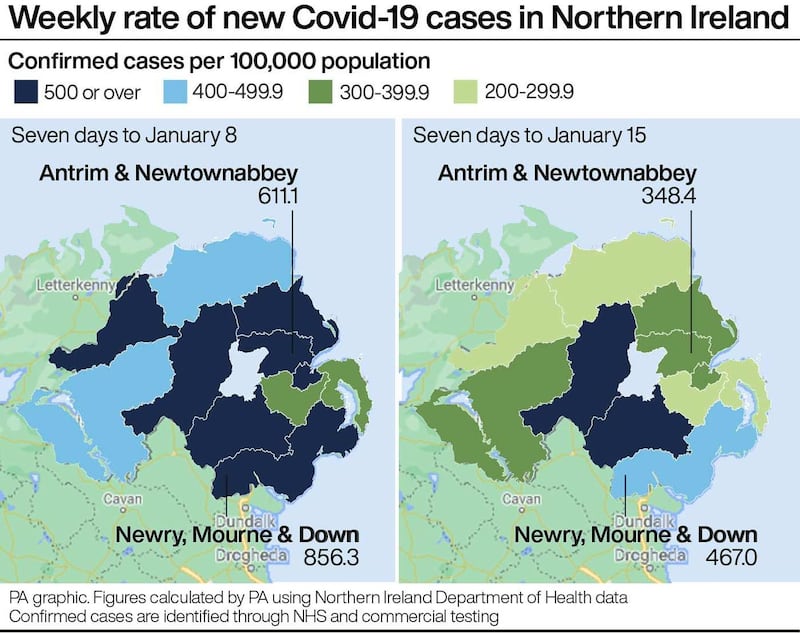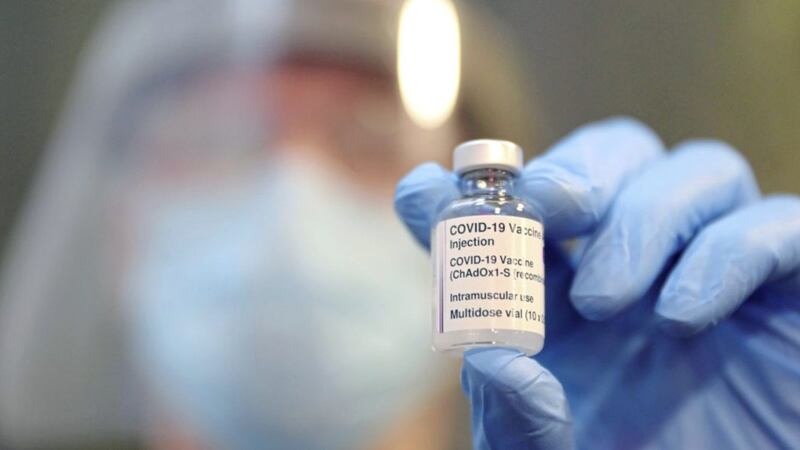A LEADING GP has said his practice is equipped to vaccinate "thousands" of at-risk patients against coronavirus "within weeks" if adequate doses are delivered.
Dr George O'Neill also accepted the frustration expressed by his colleagues who did not receive the initial batches as quickly as others - but rejected claims of a "postcode lottery" and insisted that "supply" was the issue.
Earlier this week, Sinn Féin West Tyrone MP Órfhlaith Begley said she was contacted by doctors in her constituency who felt distribution "has been unequal to date."
Dr O'Neill told The Irish News his west Belfast practice was one of 33 asked by health authorities to take part in the rollout of the Oxford AstraZenaca vaccine to the over-80s a fortnight ago.
With more than 300 GP surgeries across the north, the selection process led to mayhem with heated exchanges on social media among doctors - with some having to wait a further week for supplies.
While all practices have now received their first doses - which come in batches of 100 - it has created problems for those with larger caseloads who must prioritise which elderly patients receives the jab first.

Dr O'Neill said his surgery received "sufficient vaccine" to cover all its over-80s - the surgery has more than 200 among this age group - but added that his colleagues who got reduced doses were "quite entitled" to query how this decision was reached.
Health minister Robin Swann yesterday tweeted that a fresh delivery of the Astra Zenaca vaccine had arrived with enough "supply to complete all our over 80s". He said when that group is finished, the rollout to the over-75s can begin.
A total of 154,436 doses have now been administered in Northern Ireland - equating to seven per cent of the population. Of this, more than 34,000 jabs have been given to the over-80s through GP practices.
Dr O'Neill said: "There is no postcode lottery. The problem is that we are dependent on vaccines being released by London.
"It's my understanding the initial 33 practices got their full quota to deal with the over-80s. We assumed other practices got the same. We have some doses over which will be delivered to the housebound.
"Let's be clear, what is holding this process up is a lack of vaccines. If there were enough vaccines we would have our over-75s done in a week, over-70s done in another week and all the vulnerable patients done within 10 days. That would apply to most practices. You're talking about thousands of patients.
"The fact the 15 minutes supervision time after you receive your AstraZenaca dose is no longer required has also sped up the process."
Meanwhile, the north's Chief Medical Officer (CMO) Dr Michael McBride has confirmed the vaccination programme has begun to drive down infection rates among the most vulnerable, including those in nursing homes.
However, Dr McBride warned they needed to vaccinate as many people as possible before easing lockdown.
"It would be premature to believe that magically on February 6 when the current restrictions are due to come to an end it is back to business as usual," he told a media briefing yesterday.
"The virus will not be where we need it to be to allow us to resume life as normal."
The 'R' reproductive number has now fallen below one but a peak in hospital admissions is expected this week, with more ICU pressures expected to follow.
Dr McBride said he was "increasingly concerned" about the new UK variant and estimated it was responsible for up to a third of cases.








